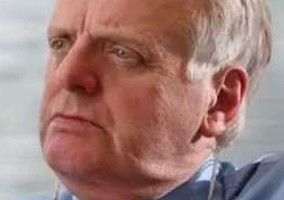The Fundraising Regulator has published for consultation its plans for the Fundraising Preference Service, including a new proposal that donors will have to renew their registration every two years.
The FPS is a system proposed in the final report of the Etherington Review of Fundraising Regulation, which will allow donors to opt out of all contact from charities.
However the new model contains a number of measures which make it less threatening to charities than first feared, including limited opt-outs, time limits, and the option for charities to contact donors to check their intentions.
FPS gets board approval
The model for the FPS was presented to the regulator's board by George Kidd, chair of the FPS working group, on 13 July. A consultation will run until the end of September.
The board has agreed in principle with the model set out by the working group, the regulator said.
The working group’s recommendations said that the FPS will apply to “the main channels of communication being: addressed mail, telephone (landlines and mobiles), email and SMS”. The ability of a person to “register a ‘vulnerable’ third party must be limited to individuals with a power of attorney or equivalent”.
The working group recommended that the levy apply to fundraising organisations spending “£100,000 or more a year” on fundraising, as set out in the Etherington Review.
The Fundraising Regulator will consider if a "two-tier pricing structure is merited" for smaller organisations who spend less than £100,000 on fundraising annually, but who do use regular communications as part of their fundraising campaigns.
The recommended FPS model is effectively split into four different actions, depending upon the wishes of an individual donor. If a donor wishes to stop phone calls, the FPS will signpost them to the existing TPS; those wishing to stop junk mailings will be signposted to the MPS.
If a person wishes to stop a charity from contacting them, but is happy to continue existing donations, a “small red button” exists. This would allow “the user to specify the charity or charities they do not want to hear from” and is described as a “targeted response to meet the user’s wishes”.
The final step – the so-called ‘reset’ button that was first mentioned in the Etherington Review – is referred to as the ‘large red button’ and would stop a user from “receiving all communications where the core purpose is fundraising”.
A receipt would be provided to someone after they have registered with the FPS.
A list of people signed up to the FPS will be “available to fundraisers after a process of validation and subscription is completed”.
Contact for clarification
The working group recommended that this validation process will “usually be through the charity registration number” and that, once validated, fundraisers will only be able to use FPS-registered persons’ data in order to clarify whether or not they wish to hear from the organisation again.
Third party fundraising agencies will not be able to access an FPS-registered donor’s data directly.
The recommended model for the FPS states that “charities and other organisation with an existing fundraising relationship” with a person registering on the FPS “should have the opportunity to make contact [with that person] to clarify if the registration is intended to cover them”.
The donor registering will “not be asked whether they want to exempt any particular fundraising charity” at the time, but will instead be informed that their registration will be “notified to fundraisers” who may then contact them once to “clarify their relationship”.
The period in which a fundraiser can contact someone who has registered with the FPS will be “for a limited period”, the exact length of which is still to be announced.
The working group recommended that, if a donor decides to go ahead with registering to the FPS, “registration will be recognised and take effect 28 days afterwards for phone calls and four months afterwards for addressed mail”, in line with existing Telephone and Mail Preference Services.
Time limit applies
The working group also recommended that, once registered, a donor will be registered to the FPS for a period that is “time limited for 2 years”.
The cost of setting up and running the FPS is forecast as being “in the region of £750,000” in the first year, which would cover the costs of set-up and delivery. This would include “spend of about £250,000 on one-off discovery, design, build and test work”.
The running costs “at least to an extent should be met by those using the service to manage their communications” and a subscription or licencing fee, similar to that already in place with the TPS and MPS is recommended. Annual subscription rates of “between £3,000 and £4,000” with lower rates for smaller entities is considered enough to cover the costs.
It is also recommended that “some of the FPS operating costs may also be met through the levy on charities to meet the Fundraising Regulator’s annual operating expenses”, with the onus being placed on the regulator to “consider the balance between income from subscriptions and contributions from the annual budget” raised through the levy.
While actual staff numbers and costs are still up in the air, the working group estimated that the FPS would need “2-3 people to run the operations” and a further “3 people at least to start with” to handle the IT requirements.
Outsource day-to-day operations
The working group also recommended that the Fundraising Regulator outsource the day-to-day operational running of the FPS to an external “partner”.
The board accepted this and also the recommendation that a tender process for this partnership be “avoided because of the delays and costs implicit in the approach”.
The group instead recommended that the regulator “explore the potential for a partnership approach based on one or at most two contractual relationships with the Direct Marketing Association and the lead contractor already delivering TPS and MPS”.
Without a tendering process for the partner, the working group estimated that the system could be “operational within six months”.
In his recommendations, George Kidd, chair of the working group, said that the “FPS will not solve all the problems associated with fundraising”, and should instead be seen as “a tool to be used within a wider framework of culture change” within the sector.
The Fundraising Regulator is now inviting submissions from the wider sector on the published FPS proposals.
Related articles












